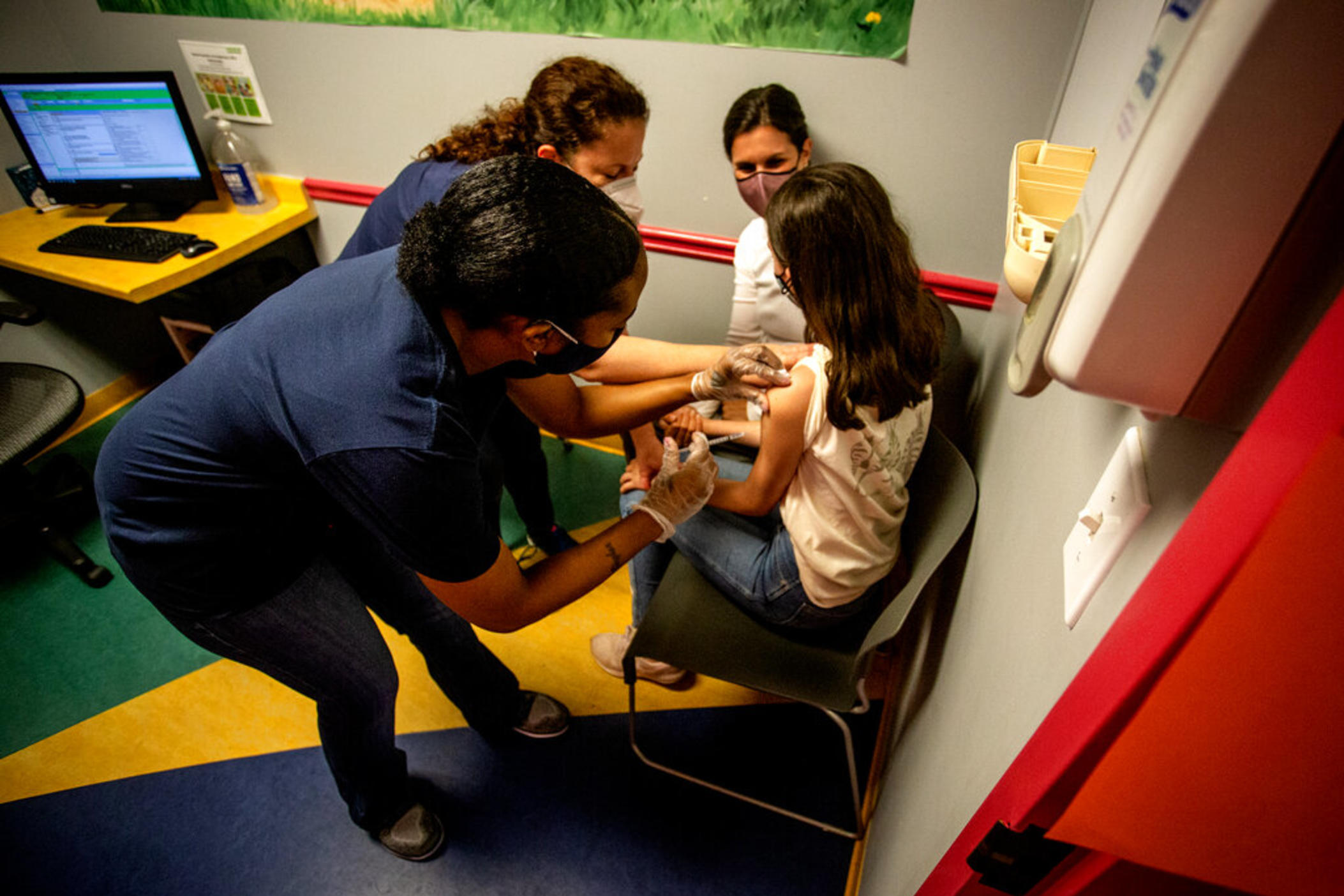Section Branding
Header Content
Georgia lawmakers could bar COVID-19 vaccine rules for good
Primary Content
Some Georgia senators want to permanently block schools and most state and local government agencies from requiring people to get vaccinated against COVID-19.
In 2022, lawmakers put a one-year ban into law, part of a broad conservative nationwide backlash against mandates meant to prevent the spread of the respiratory illness. But that ban expires on June 30 in Georgia if lawmakers don't act.
Wednesday, the Senate Health and Human Services Committee voted 7-2 to advance Senate Bill 1, which makes the ban permanent, to the full Senate.
Sen. Greg Dolezal, a Republican from Cumming who is sponsoring the bill, said that when it comes to the COVID-19 vaccine at least, the government shouldn't be able to force anyone to get it.
"I don't think it's the role of the government to determine medical decisions for its citizens, as it comes to this vaccine," Dolezal said.
The measure bars state agencies, local governments, schools and colleges from requiring proof of vaccination. But because governments and schools can't require proof, they can't enforce mandates.
Dolezal's bill originally would have also made permanent the existing five-year ban on schools being able to require children to wear masks. However, Dolezal said he now plans to bring a separate bill on that issue.
The state Department of Public Health declined to state a position on the bill, saying it doesn't comment on pending legislation.
The Georgia chapters of both the American Academy of Pediatrics and the American College of Physicians are opposing the measure, saying it will hurt Georgia's ability to fight continuing COVID-19 infections, encourage the erosion of other existing vaccine requirements, particularly for public school and college students, and hurt Georgia's ability to fight future pandemics.
"A permanent ban sets a dangerous precedent which may lead to erosion of the current vaccine requirements for school attendance for other diseases," wrote Dr. Angela Highbaugh-Battle and Dr. Melinda Willingham of the pediatricians' group. "Vaccines are widely acknowledged as perhaps the greatest achievement in recent medical history; and strong vaccine requirements for schools — enacted in every one of the 50 states — have played a major role in almost eliminating many vaccine-preventable diseases."
Committee Chairman Ben Watson, a Savannah Republican and medical doctor, drew a distinction between COVID-19 and other diseases that students are required to be vaccinated against to attend public schools and many colleges. He acknowledged the vaccine is effective in preventing death and hospitalization, but he said it can't prevent people from getting COVID-19. He likened it to the flu vaccine, which also may not prevent influenza, saying flu shots aren't required to attend school.
Only one Georgia public school system, in Decatur, had attempted to require teachers to get vaccinated before the law was passed.
The measure excludes health care facilities that are subject to federal mandates for their employees to get vaccinated to continue receiving federal payments.
Some supporters urged lawmakers to go further. Kristie Minor of Roswell urged the committee to also ban private organizations from requiring people to get vaccinated, as Florida has attempted to do.
"Discrimination continues," she testified Thursday. "This is a good first step."
She stated that the COVID-19 vaccine causes more harm than benefit among young men. COVID-19 vaccines can cause heart inflammation issues, myocarditis or pericarditis, especially in young men. Medical officials and experts say these cases are rare and typically mild, and the benefits of immunization far outweigh the risks.
Medical experts agree COVID-19 vaccines are safe and effective, and even with millions getting the shots, confirmed reports of deaths caused by vaccination are extremely rare.
More than 1.1 million people in the country have died from COVID-19 since 2020, according to the U.S. Centers for Disease Control and Prevention, including about 3,700 last week. About 42,000 people in Georgia have died from the virus.


